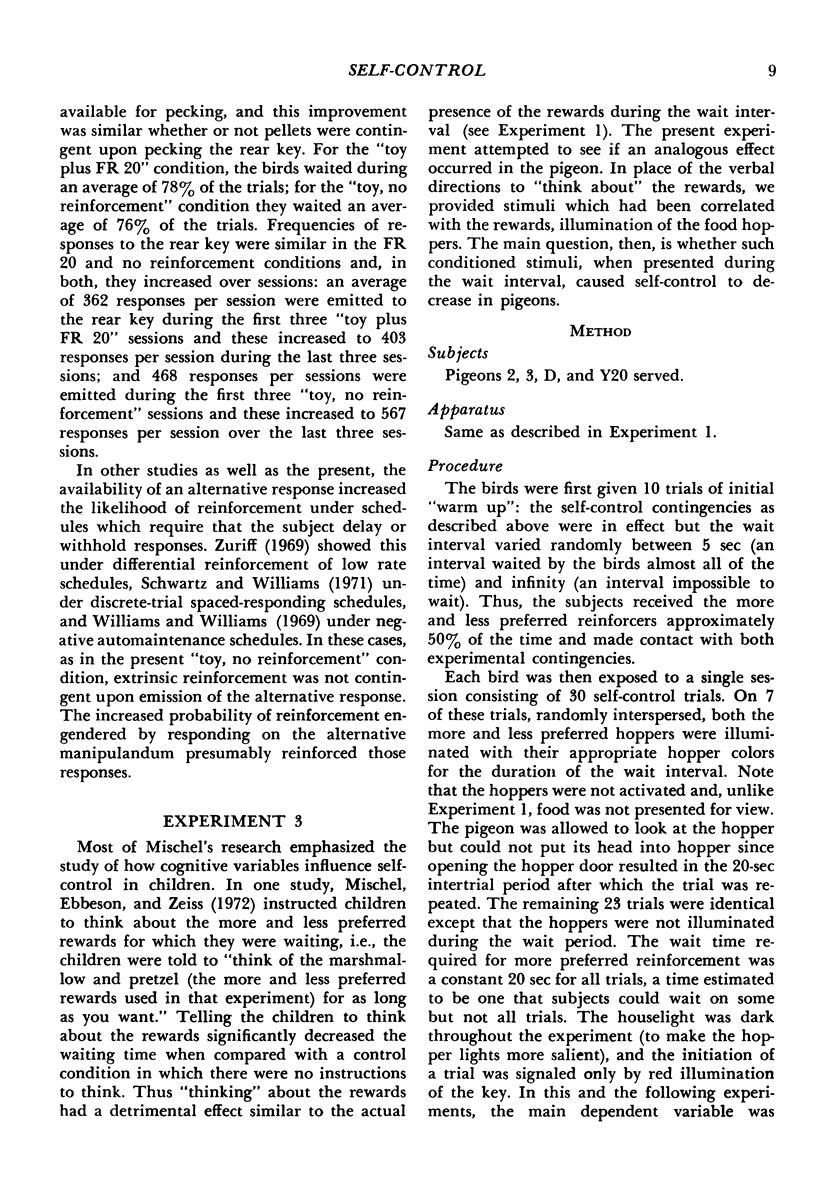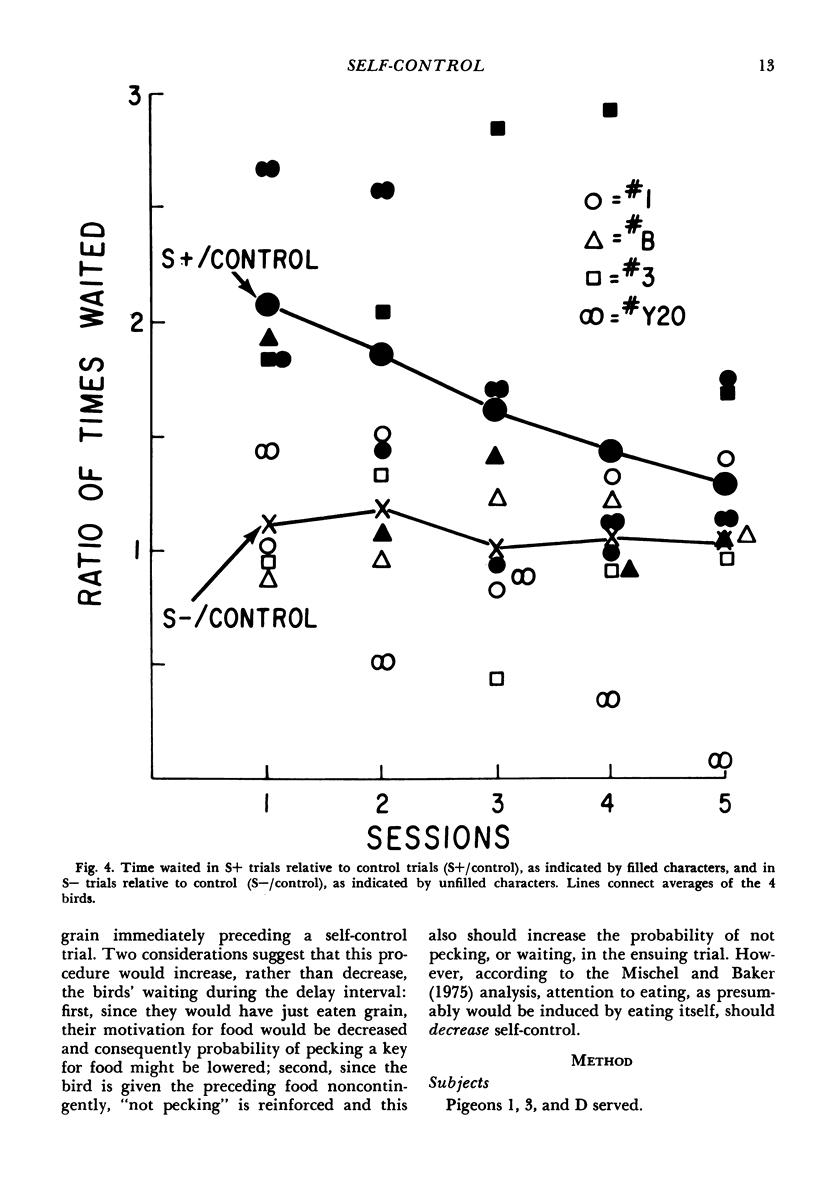Abstract
Walter Mischel studied self-control in preschool children in the following manner: if the child waited for an interval to end, he or she received the more preferred of two reinforcers; if the child responded to terminate the interval by ringing a bell, the less preferred reinforcer was given. We used an analogous procedure to study self-control in pigeons: if the bird waited for a trial to end, it received the more preferred reinforcer; if the bird terminated the trial by pecking a key, the less preferred reinforcer was given. We explored the effects on self-control of a number of variables analogous to those studied by Mischel and co-workers, e.g., presence versus absence of reinforcers, of alternative responses, and of stimuli during the wait interval; prior experience of the subjects; and test paradigm. The results obtained with pigeons paralleled the results obtained by Mischel with human children.
Keywords: delayed reinforcement, reinforcers as stimuli, alternative response, delay of gratification, conditioned reinforcement, choice, key peck, pigeons
Full text
PDF


















Selected References
These references are in PubMed. This may not be the complete list of references from this article.
- AMSEL A. Frustrative nonreward in partial reinforcement and discrimination learning: some recent history and a theoretical extension. Psychol Rev. 1962 Jul;69:306–328. doi: 10.1037/h0046200. [DOI] [PubMed] [Google Scholar]
- Lorenz K. Z. Analogy as a source of knowledge. Science. 1974 Jul 19;185(4147):229–234. doi: 10.1126/science.185.4147.229. [DOI] [PubMed] [Google Scholar]
- MAHRER A. R. The role of expectancy in delayed reinforcement. J Exp Psychol. 1956 Aug;52(2):101–106. doi: 10.1037/h0040837. [DOI] [PubMed] [Google Scholar]
- Mischel W., Ebbesen E. B., Zeiss A. R. Cognitive and attentional mechanisms in delay of gratification. J Pers Soc Psychol. 1972 Feb;21(2):204–218. doi: 10.1037/h0032198. [DOI] [PubMed] [Google Scholar]
- Mischel W., Staub E. Effects of expectancy on working and waiting for larger rewards. J Pers Soc Psychol. 1965 Nov;2(5):625–633. doi: 10.1037/h0022677. [DOI] [PubMed] [Google Scholar]
- Rachlin H., Green L. Commitment, choice and self-control. J Exp Anal Behav. 1972 Jan;17(1):15–22. doi: 10.1901/jeab.1972.17-15. [DOI] [PMC free article] [PubMed] [Google Scholar]
- Schwartz B., Williams D. R. Discrete-trials spaced responding in the pigeon: the dependence of efficient performance on the availability of a stimulus for collateral pecking. J Exp Anal Behav. 1971 Sep;16(2):155–160. doi: 10.1901/jeab.1971.16-155. [DOI] [PMC free article] [PubMed] [Google Scholar]
- Williams D. R., Williams H. Auto-maintenance in the pigeon: sustained pecking despite contingent non-reinforcement. J Exp Anal Behav. 1969 Jul;12(4):511–520. doi: 10.1901/jeab.1969.12-511. [DOI] [PMC free article] [PubMed] [Google Scholar]
- Zuriff G. E. Collateral responding during differential reinforcement of low rates. J Exp Anal Behav. 1969 Nov;12(6):971–976. doi: 10.1901/jeab.1969.12-971. [DOI] [PMC free article] [PubMed] [Google Scholar]


